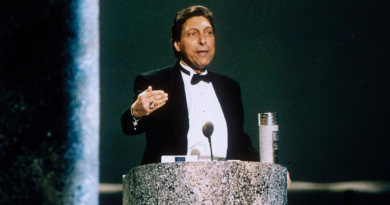Can Man United start fast? Can Bayer Leverkusen stay on top?
The Euros and Copa America ended barely two weeks ago, bleeding right into the Olympics and club exhibition season. The German second division starts its season this Friday, while other midtier leagues such as Belgium’s Jupiler Pro League have already begun play. Basically, the Olympics will carry us through the next week-and-a-half — the quarterfinals are this Friday and Saturday, the gold medal matches the next Friday and Saturday — and then it’s on to the Community Shield and everything else.
There is truly no offseason in European soccer. We always say it, and it feels more true with every passing year. The club season is once again upon us, though, and there are plenty of intriguing and/or important storylines to track in the month of August. Let’s talk about some of the biggest ones.
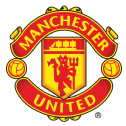 Immediate prove-it opportunities for Manchester United
Immediate prove-it opportunities for Manchester United
Even within the grand, noisy ecosystem of European soccer, Manchester United are an industry to themselves. They can sustain vast percentages of the internet on their own with the page views stemming from behind-the-scenes drama, on-field shocks, nonstop transfer rumors and semi-frequent silly transfer moves. New ownership is attempting to create something more stable and while we’ll see if that’s actually possible, their transfer efforts have actually sort of made sense this summer, hinting at actual long-term thinking instead of short-term panic.
What have United done? Well, they’ve shed onerous contracts like those of Donny van de Beek, Raphaël Varane and Anthony Martial, they could ditch more if the right deal springs up for Jadon Sancho, Antony or Casemiro, and they finally rid themselves of Mason Greenwood. Meanwhile, they addressed two key needs with youngsters instead of overpriced 29-year-olds. They added 23-year-old Bologna forward Joshua Zirkzee and 18-year-old Lille center-back Leny Yoro, and while I’m not entirely sure about Zirkzee’s fit up front — he’s far more of an energy-provider than a classic No. 9 who does things like “shoot” and “score” (though he does provide plenty of energy) — Yoro’s been an immediate hit despite an injury that will keep him out for a while.
When you acknowledge that you’re facing a longer-term rebuild to catch up to your rivals, you invest in players who might be even better in 2-3 years than they are now and once healthy, Yoro sure seems to fit that bill. (You also maybe give your uncertain manager a bit of a longer leash, too, since the short term isn’t the highest priority.)
Along with increasing mainstays such as 19-year-old midfielder Kobbie Mainoo, 20-year-old winger Alejandro Garnacho and 21-year-old forward Rasmus Hojlund, one can actually see the start of a new roster core forming. While we must acknowledge that we don’t know what other moves they’ll make this month — especially with Yoro and/or Hojlund out for a bit — we’ll quickly learn a lot about what this team might be this season.
Thanks to last season’s FA Cup final upset of Manchester City (which salvaged a spot in this season’s Europa League field despite a dismal eighth-place league finish), they’ll play in England‘s first match of 2024-25, the Community Shield against City. And by the first international break, they’ll have already played at Brighton and home against Liverpool in league play. (By the second international break, they’ll have played Spurs and Aston Villa as well.)
Most of England’s bigger clubs have at least one marquee matchup in August, but United could be the Premier League‘s main character early on.
August’s most interesting English matches
• Aug. 10: Manchester City vs. Manchester United (Community Shield, watch live on ESPN+)
• Aug. 18: Manchester City at Chelsea
• Aug. 24: Arsenal at Aston Villa
• Sept. 1: Liverpool at Manchester United
• Sept. 1: Tottenham Hotspur at Newcastle United
(Yeah, we’re including Sept. 1 as part of August since it’s a Sunday before an international break.)
The Bundesliga season starts a week later than the Premier League or LaLiga, but that’s not the case for the defending champs. Coming off of last season’s all-time campaign — they went unbeaten in Bundesliga play, won the league-and-cup domestic double, reached the finals of the Europa League and lost just once in all competitions — Bayer Leverkusen will begin their season in the DFB SuperCup on Aug. 17. Not bad, right? Oh, but by Aug. 31, they’ll have already played last year’s second-place team (VfB Stuttgart) in the SuperCup, and both last year’s fourth-place team (RB Leipzig) at home and local rival Borussia Monchengladbach on the road in league play.
Once it was confirmed that both manager Xabi Alonso and brilliant attacking midfielder Florian Wirtz were both returning for 2024-25, the club primarily chose to let it ride. Bayern loanee Josip Stanisic is the only important piece of last year’s team to depart — there are also rumors that center-back Jonathan Tah could end up leaving, too — and of the club’s three main signees, one was the requisite up-and-comer (19-year-old Rennes center-back Jeanuël Belocian) while the others are 27-year-old veterans (Girona midfielder Aleix García, Rennes winger Martin Terrier).
Garcia was one of the best midfielders in LaLiga last season and makes for a particularly intriguing addition, and while they’re not exactly going all-in on overpriced stars, Bayer Leverkusen are clearly stocking up on depth and experience and looking for a few more trophies this season.
Thanks to the schedule-makers, we’ll get an extended early look at what they do and don’t have this August.
August’s most interesting German matches
• Aug. 17: VfB Stuttgart at Bayer Leverkusen (DFB SuperCup, watch live on ESPN+)
• Aug. 23: Bayer Leverkusen at Borussia Monchengladbach (watch live on ESPN+)
• Aug. 24: Eintracht Frankfurt at Borussia Dortmund (watch live on ESPN+)
• Aug. 25: Bayern Munich at Wolfsburg (watch live on ESPN+)
• Aug. 31: RB Leipzig at Bayer Leverkusen (watch live on ESPN+)
Actually, while we’re in Germany, here are a couple of other fun notes. First, the DFB-Pokal also gave us at least one delightful first-round matchup, with salt-of-the-earth third-division club RW Essen hosting the hated “plastic” club RB Leipzig on Aug. 17.
Second, the German second division is once again loaded with big-name clubs that draw huge crowds. The 2. Bundesliga nearly averaged the same attendance as LaLiga last season, and it just added Koln to a mix that already included Schalke 04, Hamburg, Hertha Berlin and Kaiserslautern. Koln hosts Hamburg to start the season this Friday, and we also get Hertha at Hamburg (August 10) and Koln at Schalke (August 31) this month.
 Girona’s early gauntlet
Girona’s early gauntlet
The capitalist machine known as big-time European soccer is rarely crueler than it is to happy upstarts. Congratulations for overcoming significant odds and overachieving on a lower budget with a lesser history; we’re now going to pluck away all your best players (and maybe your manager) before you get a chance to do it again. Have fun in the Champions League with a much weaker squad than the one that got you there!
VfB Stuttgart, second in the Bundesliga last season, has already lost forward Serhou Guirassy and center-back Waldemar Anton (to Borussia Dortmund) and center-back Hiroki Ito (Bayern Munich); plus loanee Deniz Undav (Brighton) was so excellent last season that the Seagulls have turned down a rumored €30 million offer from Stuttgart and decided to keep him in their plans this season.
Overall, Stuttgart will be without four of probably their six or eight best players from 2023-24. Bologna, meanwhile, will be without last season’s two best players (Arsenal-bound defender Riccardo Calafiori and Manchester United’s new forward, Joshua Zirkzee) and manager Thiago Motta, who left for Juventus.
Girona might be getting hit the hardest. They lost midfielder Aleix Garcia (first on the team in completed passes, progressive passes and chances created) in an €18 million deal with Bayer Leverkusen, while loanees like winger Savinho (first in assists, second in goals), center-back Eric García (second in progressive passes, second in interceptions) and fullback Yan Couto (second in assists, second in progressive carries) were good enough that it became too expensive to get them back for another season. Transfer rumors have swirled around forward Artem Dovbyk (first in goals, second in assists) all summer, and he could be on his way out of town soon as well.
The club did hold onto manager Michel, at least, and they’ve made some intriguing additions of their own, among them: midfielder Donny van de Beek (Manchester United), winger/loanee Bryan Gil (Tottenham Hotspur) and forward Abel Ruiz (Braga). But this is indeed going to be a completely different team than the one that came out of nowhere to finish third in LaLiga, and they start the season with an absolute gauntlet. They begin with a trip to Real Betis (seventh last season), play at Atletico Madrid (fourth) 10 days later and end the month with a trip to Sevilla. Granted, Sevilla stunk last season, but they’re not far removed from a long run of good form.
This is the exact opposite of what Girona encountered last season, when they began with a long runway of mediocre opposition before playing most of the league’s good teams a few weeks or months in. If they struggle with form as new players figure out new roles, they’re going to find themselves in a pretty significant hole even before they take on their first set of Champions League matches.
August’s most interesting Spanish matches:
• Aug. 15: Girona at Real Betis (watch live on ESPN+)
• Aug. 25: Girona at Atletico Madrid (watch live on ESPN+)
• Aug. 24: Athletic Club at Barcelona (watch live on ESPN+)
• Aug. 31: Atletico Madrid at Athletic Club (watch live on ESPN+)
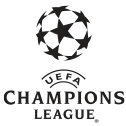 Choose your Champions League underdog
Choose your Champions League underdog
As frustrating as it may be that UEFA messed with a nearly perfect Champions League format in the name of more matches and more revenue (and more player fatigue), expanding to 36 teams and getting rid of the group stage for more wide-open schedules, at least the field itself should be fun.
We’ve got stalwarts (Real Madrid, Manchester City, Bayern, Liverpool, Barcelona, et cetera), of course, and even if some of them got stripped for parts, we’ve got plenty of new blood in the form of 2023-24 upstarts as well (Girona, Stuttgart, Bologna, Brest, Sturm Graz). With the way things are taking shape in qualifying, we’ll also have a really fun batch of underdogs.
Barring a huge comeback by Partizan Belgrade against Dynamo Kiev on Wednesday, two of the following teams will reach the Champions League via the “League Path” — Dynamo Kyiv, Fenerbahce/Lugano, Lille, Rangers, Red Bull Salzburg, Slavia Prague, Twente, Union Saint-Gilloise.
Barring huge comebacks in a couple other Wednesday matches, five of the following teams will also reach the Champions League via the “Champions Path”: APOEL, Bodo/Glimt, Crvena Zvezda, Dinamo Zagreb, FCSB, Ferencvaros, Galatasaray, Jagiellonia Bialystok, Ludogorets Razgrad, Malmo FF, Midtjylland, PAOK, Qarabag, Slovan Bratislava, Sparta Prague, and Young Boys.
There are some particularly enjoyable teams in this batch, some more familiar with Champions League play than others. Here are my top five recommendations for which teams to adopt as your own if or when they reach the group stage.
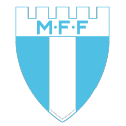 1. MALMO FF, Sweden: They’re former European Cup finalists (losing to Nottingham Forest in 1979) and from the moment they hired aggressive, young manager Henrik Rydstrom in 2023, they became one of the most enjoyable teams in Europe. They won Sweden’s Allsvenskan on the final day last season, and they’re currently on pace for the most league goals since 1949-50, while attacking midfielder Sebastian Nanasi, 22, has scored 17 goals with 17 assists since the start of 2023.
1. MALMO FF, Sweden: They’re former European Cup finalists (losing to Nottingham Forest in 1979) and from the moment they hired aggressive, young manager Henrik Rydstrom in 2023, they became one of the most enjoyable teams in Europe. They won Sweden’s Allsvenskan on the final day last season, and they’re currently on pace for the most league goals since 1949-50, while attacking midfielder Sebastian Nanasi, 22, has scored 17 goals with 17 assists since the start of 2023.
(Also, their kits are gorgeous, and their city is spectacular. But that’s neither here nor there.)
 2. BODO/GLIMT, Norway: They are about as far north as a Champions League team can be, they play on artificial turf in a town of 50,000, they go by the Yellow Horde, they gave the world Victor Boniface (he played there until Summer 2022) and they’re the class of Norway, having finished first or second in the league for five straight years. What’s not to like?
2. BODO/GLIMT, Norway: They are about as far north as a Champions League team can be, they play on artificial turf in a town of 50,000, they go by the Yellow Horde, they gave the world Victor Boniface (he played there until Summer 2022) and they’re the class of Norway, having finished first or second in the league for five straight years. What’s not to like?
They did fall just short of qualifying for the Champions League group stage in 2022-23, but they’re in awfully good form at the moment despite losing influential midfielder Albert Gronbaek to Rennes.
 3. QARABAG, Azerbaijan: They’ve won 10 of the last 11 titles in Azerbaijan’s Premier League, and they were really damn strong last season, nearly beating Bayer Leverkusen three different times in the Europa League. Leverkusen needed a stoppage-time goal to beat them in the group stage, a stoppage time goal to tie in the first leg of the round of 16 and two stoppage time goals to beat them in the second leg. They’ve got a diverse attack led by forward Juninho, and they play open and optimistic ball. It’s everything you could want in an underdog.
3. QARABAG, Azerbaijan: They’ve won 10 of the last 11 titles in Azerbaijan’s Premier League, and they were really damn strong last season, nearly beating Bayer Leverkusen three different times in the Europa League. Leverkusen needed a stoppage-time goal to beat them in the group stage, a stoppage time goal to tie in the first leg of the round of 16 and two stoppage time goals to beat them in the second leg. They’ve got a diverse attack led by forward Juninho, and they play open and optimistic ball. It’s everything you could want in an underdog.
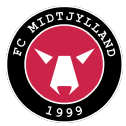 4. MIDTJYLLAND, Denmark: The nerds are back! The team primarily known in Europe as analytics-heavy Brentford owner Matthew Benham’s other club won three Danish titles in six seasons and played in the Champions League group stage in 2020-21, but they slipped to seventh in the Danish Superliga in 2022-23.
4. MIDTJYLLAND, Denmark: The nerds are back! The team primarily known in Europe as analytics-heavy Brentford owner Matthew Benham’s other club won three Danish titles in six seasons and played in the Champions League group stage in 2020-21, but they slipped to seventh in the Danish Superliga in 2022-23.
No worries! They charged back to win their first title in four years, they’re back in the Champions League mix, and in South Korean forward Cho Gue-sung and a pair of enticing 20-year olds — forward Franculino and winger Darío Osorio — they’ve got some firepower up front. (They recently added former New England Revolution star Adam Buksa, if that does anything for you.)
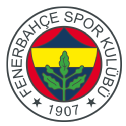 5. FENERBAHCE, Turkey: They hired Jose Mourinho, they signed Youssef En-Nesyri (Sevilla), Allan Saint-Maximin (Al-Ahli), Caglar Söyüncü (Atletico Madrid) and Rade Krunic (AC Milan), and they already had former Manchester United midfielder Fred, former Ajax winger Dusan Tadic and former everywhere forward Edin Dzeko in tow.
5. FENERBAHCE, Turkey: They hired Jose Mourinho, they signed Youssef En-Nesyri (Sevilla), Allan Saint-Maximin (Al-Ahli), Caglar Söyüncü (Atletico Madrid) and Rade Krunic (AC Milan), and they already had former Manchester United midfielder Fred, former Ajax winger Dusan Tadic and former everywhere forward Edin Dzeko in tow.
This just feels like a team that should be annoying the hell out of Premier League teams in the Champions League, doesn’t it?
Important August Champions League dates:
• July 31: second qualifying round (second leg)
• Aug. 6-7: third qualifying round (first leg)
• Aug. 13: third qualifying round (second leg)
• Aug. 20-21: final qualifying round (first leg)
• Aug. 27-28: final qualifying round (second leg)
• Aug. 29: Champions League draw
Who You Are on July 31 vs. Who You Are on Aug. 31
Manchester United probably isn’t done making moves. Chelsea and Aston Villa are never done. Liverpool, Manchester City and Barcelona have barely even started. Athletic Club’s Nico Williams could go to PSG or Barcelona, though Barcelona could pull foolish levers for RB Leipzig’s Dani Olmo (who might also go to Manchester City). Napoli‘s Victor Osimhen could go to Chelsea. Manchester United’s Jadon Sancho could go to PSG or elsewhere. Girona’s Artem Dovbyk could leave for Roma at any moment. Juventus’ Federico Chiesa could move to England. Atletico Madrid could make a move for Chelsea’s Conor Gallagher and/or Manchester City’s Julián Álvarez.
There are still lots of major moves that could take place after league seasons begin, in other words. All of the important matches above could feature teams that no longer exist in the same form by September — and some of them might generate a run of last-second transfer gambits as well. (This is probably why Serie A gets it right in almost entirely foregoing big club-versus-big club matches until September or later.) So while I can talk about what we might learn about Team A or Team B in August, what we learn might not last.
Regardless, it’s time to get started even if it does feel like the 2023-24 season ended about eight hours ago.




